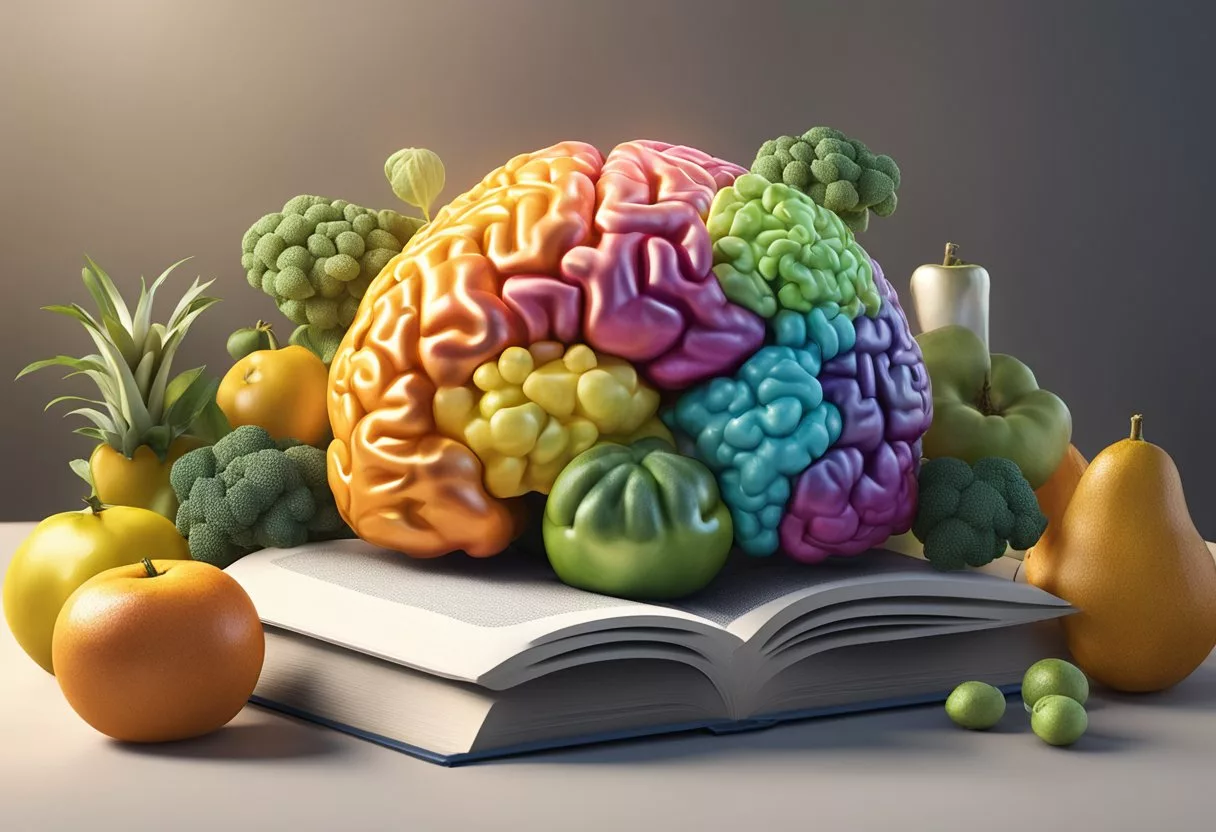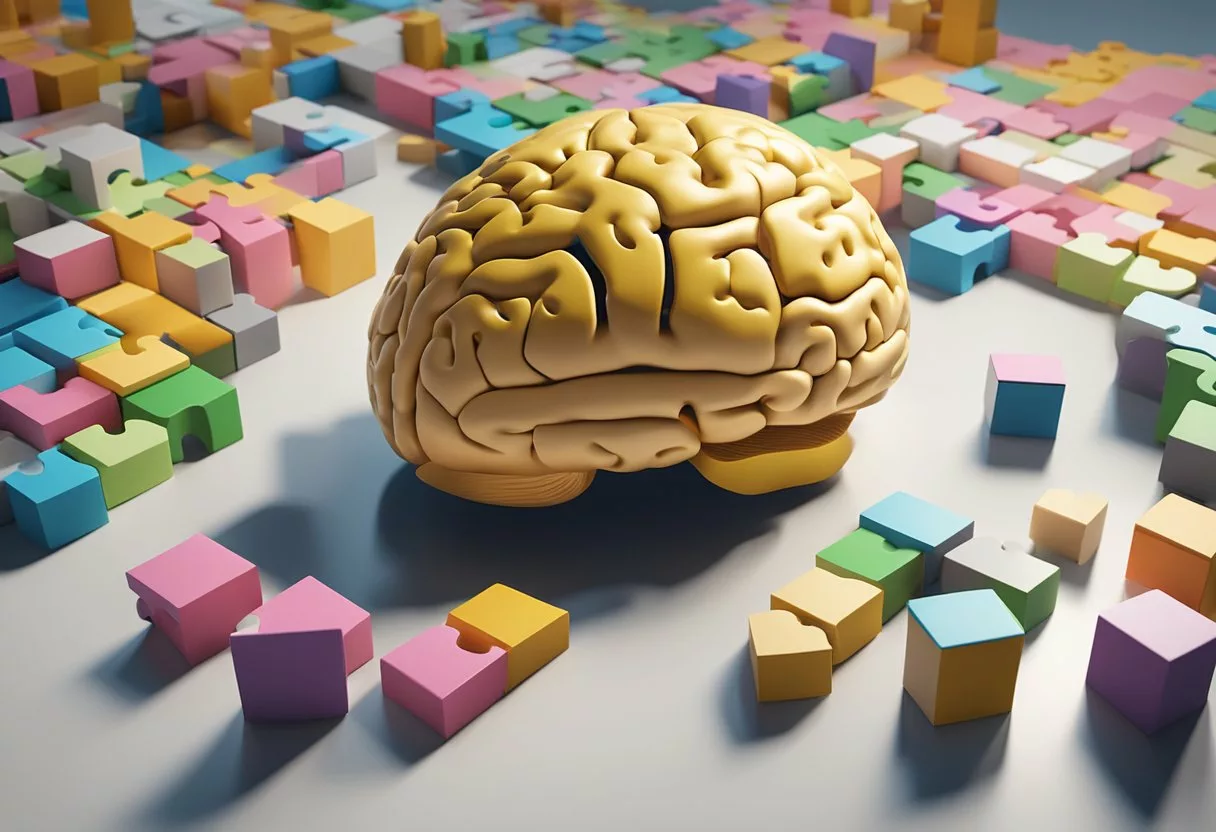Maintaining brain health is a critical aspect of overall wellness, particularly as one ages.
Scientific research continually underscores the importance of lifestyle choices in supporting cognitive function and delaying the onset of neurological conditions.
A brain-healthy lifestyle involves a multifaceted approach that includes physical exercise, mental stimulation, and social engagement.
Nutrition also plays a fundamental role, with a diet rich in antioxidants, healthy fats, and vitamins proving beneficial for cerebral well-being.

Advances in neuroscience have illuminated the significance of preventive measures and how the adoption of certain habits can foster long-term neuroprotection.
These strategies not only help in preserving memory and cognitive skills but also contribute to the structural integrity of the brain itself.
Understanding and managing chronic conditions such as hypertension and diabetes is paramount, as these can have deleterious effects on brain function.
Moreover, emerging research continues to offer insights into how interventions such as mindfulness and cognitive training can further bolster brain health.
Key Takeaways
- A healthy brain is nurtured through physical activity, mental challenges, and proper nutrition.
- Management of chronic health conditions is crucial for preserving cognitive functions.
- Ongoing scientific research informs effective strategies for neuroprotection and brain health maintenance.
Understanding Brain Health

Maintaining a healthy brain is crucial as it governs all aspects of human function, from movement and sensation to complex processes such as memory and emotions.
The brain’s health is influenced by various factors, including aging, genetic disposition, and lifestyle choices.
The Aging Brain
The aging process naturally affects the brain’s structure and function. Neurons can become less efficient and the number of synaptic connections may decline, leading to changes in cognitive abilities.
However, regular mental and physical exercises can help preserve neuronal health and brain function.
Risk Factors and Prevention
Many risk factors for cognitive decline are preventable.
Heart disease and stroke, for instance, can damage blood vessels, affecting the brain’s ability to function optimally.
Mitigating these risks through healthy habits—like a balanced diet, regular exercise, and controlling blood pressure—can aid in dementia prevention.
Neurological and Cognitive Disorders
Disorders such as Alzheimer’s disease and other forms of dementia are closely linked to aging.
The deterioration of brain cells leads to memory loss and cognitive impairment, but early detection and management can slow progression.
Research also points to the benefits of mental stimulation and social engagement in combating cognitive decline.
The Role of Genetics
Genetics play a pivotal role in brain health.
Certain genes have been identified in association with neurological disorders like Alzheimer’s disease, though not everyone with these genes will develop the condition.
Genetic testing can inform individuals about their risk, but it is lifestyle and prevention strategies that often determine long-term outcomes.
Lifestyle and Brain Health

A healthy lifestyle can have a significant impact on brain health.
Choices regarding diet, physical activity, and other lifestyle factors contribute to cognitive function and overall well-being.
Nutrition and Diet
Eating a balanced diet that includes a variety of plant-based foods, such as vegetables, fruits, nuts, and whole grains, is essential for brain health.
Fish and olive oil, core components of the Mediterranean diet, are rich in omega-3 fatty acids, beneficial for maintaining healthy blood flow to the brain.
It’s important to manage blood sugar and cholesterol levels to reduce the risk of diabetes and high blood pressure, conditions that can lead to cognitive decline.
Physical Activity and Exercise
Regular physical activity and exercise strengthen the muscles and enhance physical health, but they also bolster brain health.
Activities that get the heart pumping, known as aerobic exercise, increase oxygen supply to the brain and can improve memory and thinking abilities.
Maintaining a healthy weight is also crucial for preventing issues that can affect cognitive health.
Cognitive Stimulation
Challenging the brain through activities like crossword puzzles, reading, and maintaining a strong mental focus are believed to strengthen connections between nerve cells.
These intellectually stimulating activities help to build cognitive reserves, possibly preventing memory problems and cognitive decline.
Social Engagement
Regular social interaction can have a powerful effect on the brain and can combat emotions such as depression and anxiety.
Social isolation can negatively impact cognitive function, therefore, maintaining social connections is integral for mental health.
Stress Management
Chronic stress can impair brain function, potentially leading to depression or anxiety.
Practices like meditation and mindfulness can mitigate stress response and contribute to emotional stability, which is essential for cognitive health.
Sleep Quality
Sleep plays a vital role in brain health, allowing the brain to clear out toxins and consolidate memories.
Adequate, high-quality sleep can improve problem-solving skills and enhance learning.
Substance Use and Brain Health
Limiting alcohol use, avoiding smoking, and steering clear of illicit drugs are important for maintaining brain health.
Tobacco and excessive alcohol consumption can have detrimental effects on blood pressure and blood flow to the brain, increasing the risk of cognitive decline. Therefore, efforts to quit smoking and moderate alcohol intake are beneficial for the brain.
Understanding and Managing Chronic Conditions

Chronic conditions such as heart disease, diabetes, and high blood pressure can significantly impact brain health over time.
Effective management of these conditions is crucial for maintaining cognitive function and reducing the risk of dementia and stroke.
Preventive Measures and Interventions

In the quest to preserve brain health, it’s crucial to adopt preventive measures and engage in interventions that target dementia and cognitive decline. This section delves into specific strategies for dementia prevention, maintaining cognitive function, and making lifestyle changes that reduce risk factors.
Dementia and Alzheimer’s Disease Prevention
Dementia, including Alzheimer’s disease, can be attributed to the buildup of beta-amyloid plaques and neurofibrillary tangles leading to neuronal atrophy and memory loss. To combat these conditions, key prevention strategies focus on addressing modifiable risk factors such as controlling high blood pressure and cholesterol levels, which are potential contributors to stroke — a known risk factor for dementia.
Moreover, recent studies highlight the potential of multimodal interventions, emphasizing physical activity, cognitive stimulation, and social engagement in delaying the onset of dementia symptoms. For instance, interventions like My Healthy Brain are designed to address factors that may contribute to cognitive decline.
Strategies to Maintain Cognitive Function
The importance of continuous engagement in cognitive stimulation activities is paramount for maintaining mental focus and preventing memory loss.
Activities that challenge the brain, such as learning new skills, solving puzzles, and partaking in memory exercises, have been shown to strengthen cognitive reserve. Relevant interventions can also take the form of psychoeducational programs that improve various cognitive functions.
An example is the program Keep your brain fit!, which aims to enhance feelings of stability and sense of control among participants.
Lifestyle Changes for Risk Reduction
Lifestyle modifications are a cornerstone of dementia prevention. They include:
- Diet: Adhering to a healthy diet, rich in fruits, vegetables, and omega-3 fatty acids, while limiting intake of saturated fats and sugars.
- Exercise: Regular physical activity can reduce the risk of Alzheimer’s and other dementias; the goal is at least 150 minutes of moderate exercise per week.
- Mental Health: Managing stress and treating conditions like depression, which are identified as risk factors for cognitive decline.
Eliminating unhealthy habits such as smoking and excessive alcohol consumption is also a recommended intervention.
These lifestyle changes not only contribute to a reduced risk of dementia but also to overall brain health, potentially staving off various dementias and enhancing the quality of life as one ages.
Emerging Research and Future Directions
Recent studies in brain health are paving the way for groundbreaking approaches to prevent and treat neurodevelopmental disorders and age-related cognitive decline. A focus has been on identifying networks within the brain that can be influenced to improve overall function and resilience.
In the realm of aging and dementia, there is promise in research on the neuroimmune network that may lead to interventions aimed at mitigating the effects of early-life stress on later health outcomes. This research is significant for understanding potential therapeutic targets for diseases such as Alzheimer’s.
New directions in brain science involve digital technologies. They are being explored for their role in treating anxiety and related disorders with emerging efficacy, highlighting a trend towards integrating technology in mental health strategies.
Researchers are delving into the layer of brain function known as the “neuroimmune network”, shedding light on how physical and emotional health are interconnected through immune responses.
Furthermore, there is a concerted call for more encompassing studies that integrate physical, social, and mental health services to provide holistic care for older adults. This holistic strategy manifests the need to approach brain health through multi-faceted lenses, recognizing the complexity of mental wellness.
Prevention strategies are also evolving as science advances, offering new ways to protect against cognitive decline before it begins. This proactive approach has the potential to alter the landscape of neurodevelopmental disorders and Alzheimer’s disease.
The research community emphasizes the necessity for future studies to bridge the gap between online and offline risk factors for adolescent mental health. Addressing these factors may provide further insight into preemptive care strategies and digital interventions.
Conclusion

Maintaining brain health is a multifaceted endeavor that intertwines various aspects of lifestyle choices. Research indicates that consistent physical activity is a cornerstone for cognitive preservation and enhancement. A regular exercise regimen can elevate blood flow to the brain, thereby supporting neuron health and function.
Healthy eating habits are equally critical. Diets rich in fruits, vegetables, healthy fats, and whole grains contribute to better mental performance.
Individuals should consider integrating foods known for their brain-boosting properties, such as omega-3 fatty acids from fish and antioxidants from berries.
Cognitive engagement through activities that require mental focus, such as puzzles, reading, or learning new skills, helps to keep the mind sharp and agile.
Studies like “Keep your brain fit!” suggest that adults who actively engage in mentally stimulating activities may experience improvements in cognitive function and a stronger sense of control over their memory abilities.
Frequently Asked Questions

The questions below cover specific actions one can take and foods to eat to promote brain health, practices to sharpen cognition, and habits beneficial for brain function.
What are some effective ways to enhance brain health?
Incorporating mental stimulation through activities like puzzles, learning new skills, and reading can enhance neural connections.
Which foods are considered beneficial for brain health?
Foods high in omega-3 fatty acids, such as salmon and walnuts, are known to benefit brain health.
What practices can help maintain cognitive sharpness with age?
Engaging in regular physical exercise and maintaining social connections are practices that contribute to maintaining cognitive sharpness.
How can one reduce the risk of dementia through lifestyle choices?
Adopting a healthy diet, staying physically active, and managing cardiovascular health can reduce the risk of dementia.
What exercises or activities can contribute to a healthier brain?
Aerobic exercises like walking or swimming have been shown to increase brain volume and improve cognition.
Are there any quick daily habits that can boost brain function?
Simple daily habits can support overall brain function. These include getting adequate sleep, practicing mindfulness, and staying hydrated.